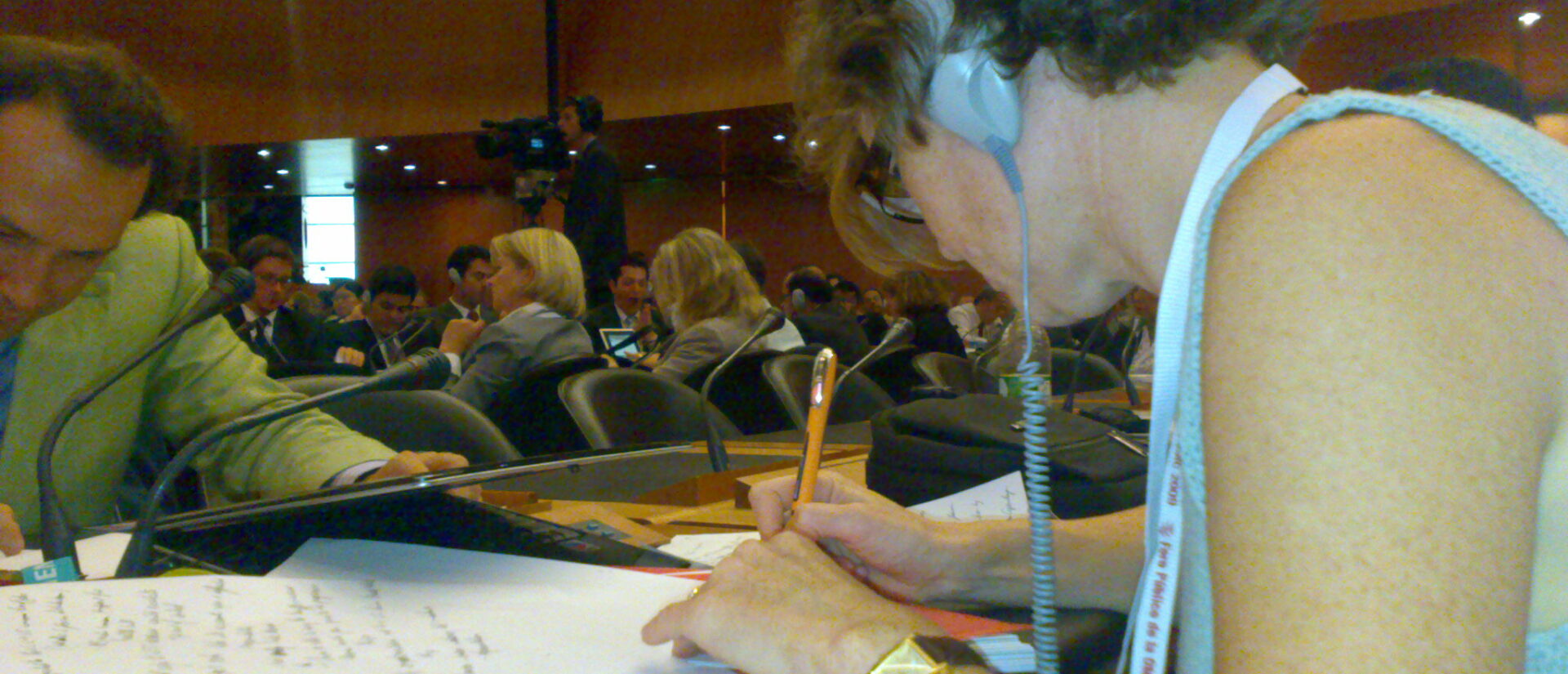
Building a coalition against food speculation
On 5 July, the European Parliament voted on a bill to introduce a first law to regulate trade in speculative financial products. Senior researcher Myriam Vander Stichele at SOMO can take a break before the next fight on European rules against food speculation.
“Banks and institutional investors are making huge profits by speculating with raw materials such as grain, maize and soya, but these markets are not intended for financial players,” explains Vander Stichele. “This results in price volatility, of which farmers and consumers in poor countries become victims. These profits disappear in bonuses rather than in sustainable agriculture investments..”
Regulation of the derivatives market is currently primarily in the hands of the European Commission. The financial world is resisting possible rules. It wasn’t until September 2010 that the Commission proposed the first bill on the European Market Infrastructure Regulation (EMIR) including over-the-counter derivatives.
“This financial market is so complex that it took some time before politicians and the public realised that food has become part of financial speculation. I have learned a lot from literature and am now working together with a number of social organisations, we’ve managed to arrange and attend a hearing addressed by the European Commission last September.. We’ve also invited a large number of social organisations and put together an information day in order to increase opposition. These organisations were then able to continue bringing attention to the subject among politicians and the public in their own countries.”
Vander Stichele provided the NGOs with relevant documents and popular versions which could be used for campaigns to increase pressure on European and national politicians. A targeted email campaign was organised, which involved sending around 14,000 letters to the MEPs in the Committee on Economic and Monetary Affairs calling on a vote against food speculation.
Meanwhile, Vander Stichele has written a substantial number of amendments to the complicated bill, in which context, together with several others, contacted various groups within the European parliament.
The amendments related to the proposal on public reporting, which were ultimately incorporated, proposed to set certain limits on the number of future contracts that may enter into the dividing derivatives market. “At the moment, the EU is limiting itself to making things safer by expanding the infrastructure. Thankfully we have managed to persuade the MEPs that the introductory paragraph of the EMIR states that the next legislation – the Market in Financial Instruments Directive (MiFID) – should contain rules intended to reduce food speculation.”
The proposals for MiFID and a third act on abuse in the derivatives market known as the Market Abuse Directive are still pending. “They keep getting delayed. It is a sign that the financial lobby is not sitting still.”
Related news
-

-
Why share buybacks are bad for the planet and peoplePosted in category:Opinion
 Myriam Vander StichelePublished on:
Myriam Vander StichelePublished on: Myriam Vander Stichele
Myriam Vander Stichele -
Hungry for profits Published on:
 Vincent KiezebrinkPosted in category:Publication
Vincent KiezebrinkPosted in category:Publication Vincent Kiezebrink
Vincent Kiezebrink


